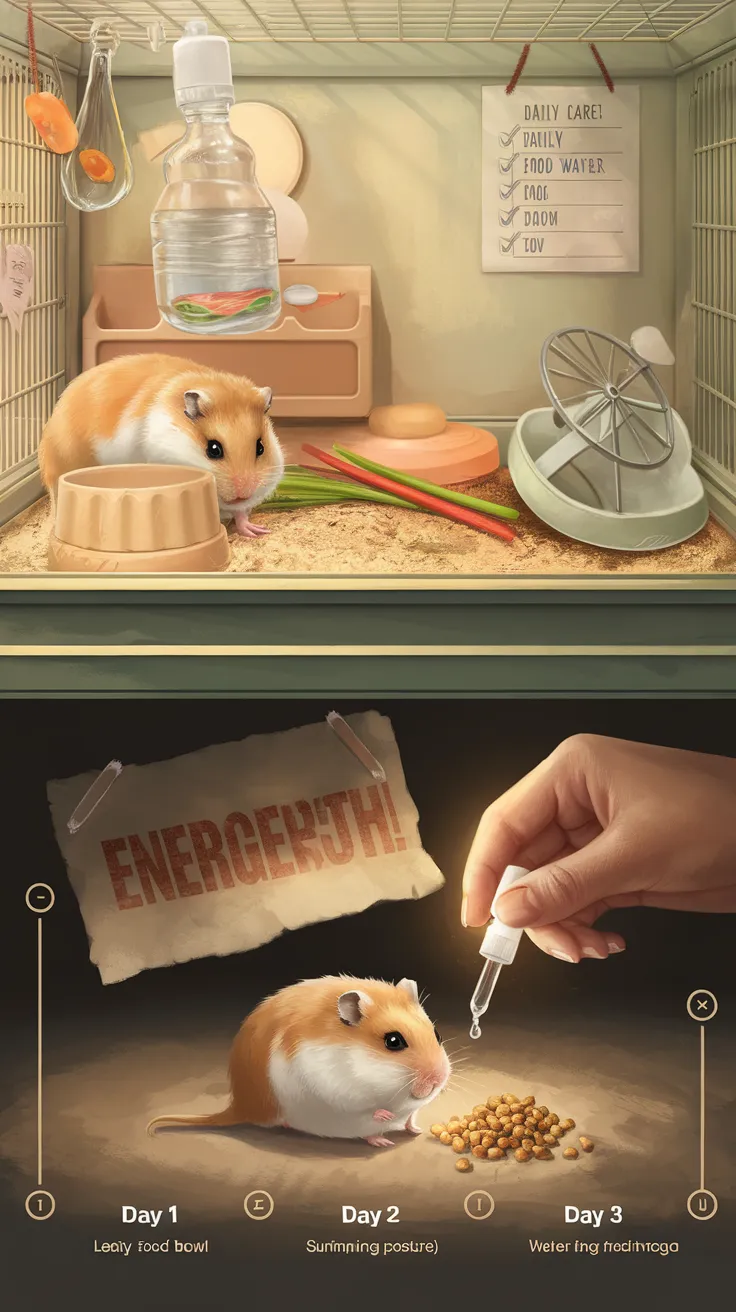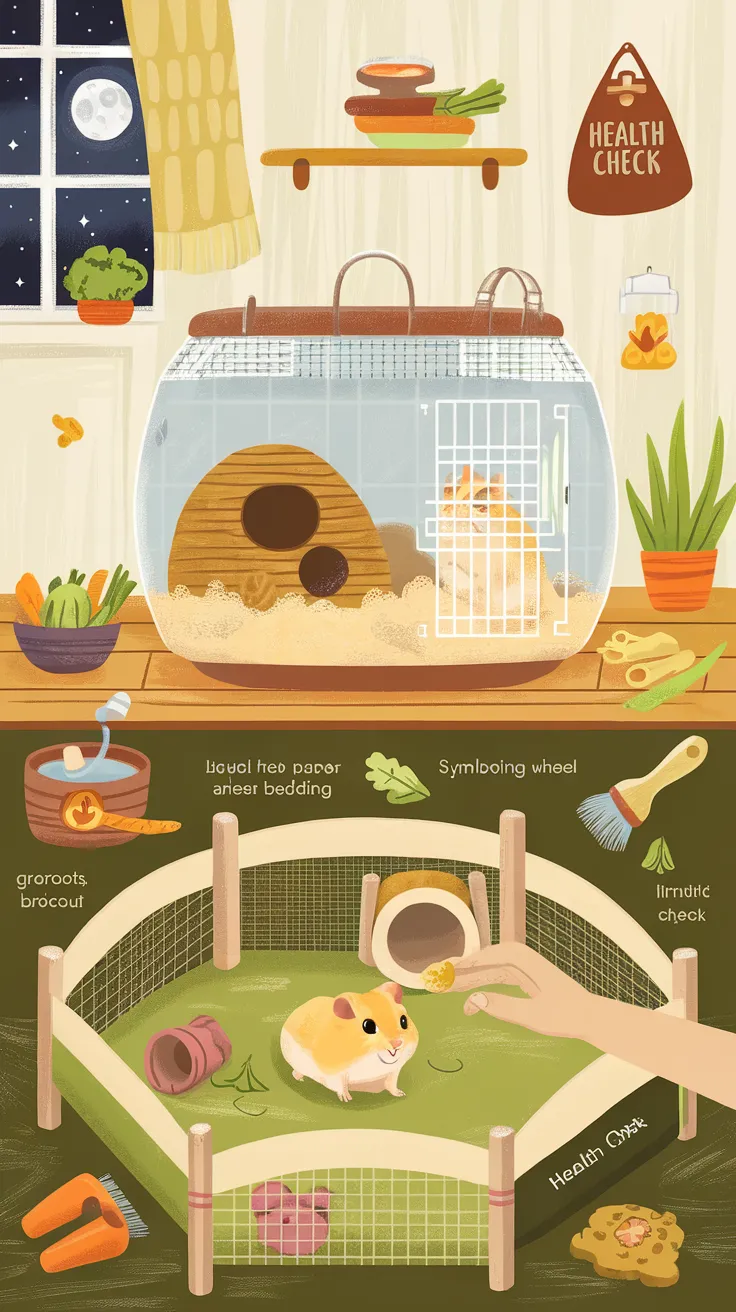Can Hamsters Eat Watermelon?: A Safe and Nutritious Treat
Yes, hamsters can eat watermelon, but only in small amounts. Watermelon should be a treat, not a regular part of their diet.
Hamsters are curious and love to nibble on different foods. Watermelon is juicy and sweet, making it a tempting snack. But, it contains a lot of water and sugar. This can cause digestive issues if given too much. Offering small pieces occasionally can be a refreshing treat.
It helps to keep them hydrated, especially in hot weather. It’s important to remove any seeds and rind before giving it to your hamster. This ensures their safety and prevents choking. Always watch your pet for any signs of discomfort or allergies after introducing new foods.
Introduction To Hamsters And Their Diet
Hamsters are small, adorable pets that bring joy to many homes. They need a balanced diet to stay healthy and active. Understanding what hamsters can eat is crucial for their well-being. This guide explores if watermelon is safe for hamsters. But first, let’s discuss their dietary needs.
Importance Of A Balanced Diet
A balanced diet is vital for a hamster’s health. It ensures they get all necessary nutrients. A proper diet helps in their growth and energy levels. It also supports their immune system.
Hamsters need a mix of proteins, fats, and fibers. Each nutrient plays a different role in their body. Proteins help in muscle growth. Fats give them energy. Fibers aid in digestion. Ensuring your hamster gets all these nutrients is important.
Common Foods For Hamsters
Hamsters can eat a variety of foods. Seeds and grains are their main diet. They also enjoy fresh fruits and vegetables. Carrots, apples, and broccoli are good choices.
Pellets are a convenient option. They provide a balanced mix of nutrients. Make sure the pellets are of good quality. Avoid those with artificial colors or preservatives.
Occasional treats are fine. But avoid sugary or fatty foods. These can harm your hamster’s health. Small amounts of nuts or dried fruits can be given. Always introduce new foods slowly. Watch for any allergic reactions.
Nutritional Benefits Of Watermelon
Watermelon is a delightful treat for humans. But what about hamsters? Understanding the nutritional benefits of watermelon can help you decide if it’s a good snack for your furry friend. In this section, we will explore the vitamins, minerals, and hydration benefits of watermelon for hamsters.
Vitamins And Minerals
Watermelon contains many vitamins and minerals that are beneficial for hamsters. Some of these include:
- Vitamin C: Helps boost the immune system.
- Vitamin A: Supports healthy vision.
- Potassium: Maintains healthy muscle function.
- Magnesium: Supports bone health.
These vitamins and minerals are essential for your hamster’s overall well-being. They help keep your pet healthy and active.
Hydration Benefits
Watermelon is made up of about 92% water. This high water content can help keep your hamster hydrated, especially during hot weather. Hydration is important for hamsters as they can become dehydrated quickly.
In addition to keeping your hamster hydrated, the water content in watermelon can help with digestion. It can prevent constipation and keep your hamster’s digestive system working smoothly.
Offering small pieces of watermelon as a treat can provide both nutritional and hydration benefits for your hamster. Just make sure to give it in moderation to avoid any potential issues.
Is Watermelon Safe For Hamsters?
Hamsters can eat watermelon in moderation. This juicy fruit provides hydration and vitamins. Always remove seeds and rind to avoid choking hazards.
Watermelon is a tasty and refreshing fruit. Many hamster owners wonder if it is safe for their small pets. This section addresses whether hamsters can eat watermelon and how to do it safely.Potential Risks
Feeding watermelon to hamsters can pose certain risks. Here are some potential problems:- High Water Content: Watermelon has a high water content. This can cause diarrhea in hamsters.
- Sugar Levels: Watermelon contains sugar. Too much sugar can lead to obesity and diabetes in hamsters.
- Choking Hazard: Seeds in watermelon can be a choking hazard for hamsters.
Safe Feeding Practices
When feeding watermelon to hamsters, follow these safe practices:- Small Portions: Give only a small piece of watermelon. Large amounts can cause digestive issues.
- Seed Removal: Remove all seeds before giving watermelon. Seeds are a choking hazard.
- Fresh and Clean: Ensure the watermelon is fresh and clean. Do not give spoiled fruit.
- Frequency: Offer watermelon as an occasional treat. It should not be a regular part of their diet.
| Do’s | Don’ts |
|---|---|
| Offer small, seedless pieces | Give large amounts |
| Ensure the fruit is fresh | Feed spoiled or old fruit |
| Use as an occasional treat | Include as a regular diet item |
How Much Watermelon To Feed
Feeding watermelon to your hamster can be a delightful treat. But you should be careful with the quantity. Watermelon is rich in water and sugar, which can impact your hamster’s health. Here, we discuss the right amount of watermelon to feed your furry friend.
Portion Sizes
Hamsters are small, so they need small portions. A tiny cube of watermelon, about the size of a raisin, is enough. Too much can lead to stomach issues. Always remove the seeds and rind before giving watermelon to your hamster.
Frequency Of Feeding
Feed your hamster watermelon only once a week. Frequent feeding can lead to weight gain and diabetes. Watermelon should be an occasional treat, not a regular part of their diet. Monitor your hamster after feeding to ensure they do not have any adverse reactions.
Preparing Watermelon For Hamsters
Hamsters love fresh fruits like watermelon. But you must prepare it carefully. Proper preparation ensures your hamster’s safety and enjoyment. Let’s break down the steps to get watermelon ready for your furry friend.
Choosing The Right Watermelon
Always choose a ripe watermelon. Unripe or overripe melons can upset your hamster’s stomach. Look for a watermelon with a firm texture and a uniform shape. The skin should be free from cuts or bruises.
Check the color of the watermelon. A ripe one has a deep green color with light stripes. The underside should have a yellow spot, indicating ripeness. Avoid watermelons with white or pale spots. They are likely not ripe.
Cutting And Serving
Wash the watermelon thoroughly. This removes any pesticides or dirt. Cut the watermelon into small, bite-sized pieces. Make sure each piece is no larger than half an inch in size. This prevents choking hazards.
Remove all seeds from the watermelon pieces. Seeds can be dangerous for hamsters. They can cause choking or digestive issues. After removing the seeds, cut away any rind. The rind is tough and hard to digest for hamsters.
| Step | Action |
|---|---|
| 1 | Choose a ripe watermelon |
| 2 | Wash the watermelon |
| 3 | Cut into small pieces |
| 4 | Remove seeds and rind |
Serve the watermelon to your hamster in moderation. Too much fruit can cause diarrhea. Start with a small amount and observe your hamster. If they enjoy it without any issues, you can give them a little more next time.
Proper preparation of watermelon ensures your hamster stays healthy. Follow these steps for a safe and tasty treat.
Signs Of Overfeeding Or Allergies
Hamsters enjoy a variety of fruits and vegetables, but moderation is key. Watermelon can be a tasty treat for your furry friend. But overfeeding or allergies can cause problems. Understanding the signs of overfeeding or allergies helps ensure your hamster stays healthy.
Symptoms To Watch For
Observe your hamster closely after feeding watermelon. Common signs of overfeeding include diarrhea and lethargy. An overfed hamster may also gain weight rapidly. Allergic reactions, though rare, can occur. Watch for symptoms like itching, swelling, or difficulty breathing. A sudden change in behavior may signal an issue.
What To Do If Issues Arise
If your hamster shows signs of overfeeding or allergies, stop giving watermelon. Remove any remaining pieces from their habitat. Offer fresh water and monitor their condition. If symptoms persist or worsen, consult a veterinarian. They can provide specific advice and treatment. Early intervention can prevent serious health issues. Prioritize your hamster’s well-being by staying informed and attentive.
Alternatives To Watermelon
Hamsters love a variety of fruits and vegetables. While watermelon can be a refreshing treat, too much can cause digestive issues. It is important to explore other food options for your hamster. Here are some alternatives to watermelon.
Other Fruits
Hamsters enjoy apples. Make sure to remove the seeds. They are toxic. Blueberries are another good choice. They are packed with vitamins. Strawberries can also be given. Just wash them well. Grapes are fine too. Cut them into small pieces. Avoid citrus fruits. They are too acidic.
Vegetable Options
Carrots are a great choice. They are crunchy and nutritious. Broccoli is another option. It is full of vitamins. Cucumbers can be fed in small amounts. They are hydrating. Spinach is safe too. It is rich in iron. Always wash vegetables thoroughly. Avoid onions and garlic. They are harmful.
Frequently Asked Questions
Can Hamsters Safely Eat Watermelon?
Yes, hamsters can safely eat watermelon in moderation. It is hydrating and nutritious. Always remove seeds and rind.
How Much Watermelon Should Hamsters Eat?
Hamsters should eat a small piece of watermelon, about the size of a teaspoon. Too much can cause digestive issues.
Is Watermelon Good For Hamster’s Health?
Watermelon is good for hamsters in small amounts. It provides hydration and essential vitamins but should be a treat.
Can Baby Hamsters Eat Watermelon?
Baby hamsters should not eat watermelon. They have sensitive stomachs and need a specific diet until they mature.
Conclusion
Hamsters can enjoy watermelon in moderation. This juicy fruit offers hydration and vitamins. Always remove seeds and rind before feeding. Small portions are best to avoid digestive issues. Fresh, clean water should always be available. Monitor your hamster for any adverse reactions.
Proper care ensures a happy and healthy pet. Remember, variety in diet is key. Offering different fruits and vegetables keeps your hamster balanced. Enjoy watching your furry friend relish this tasty treat!



